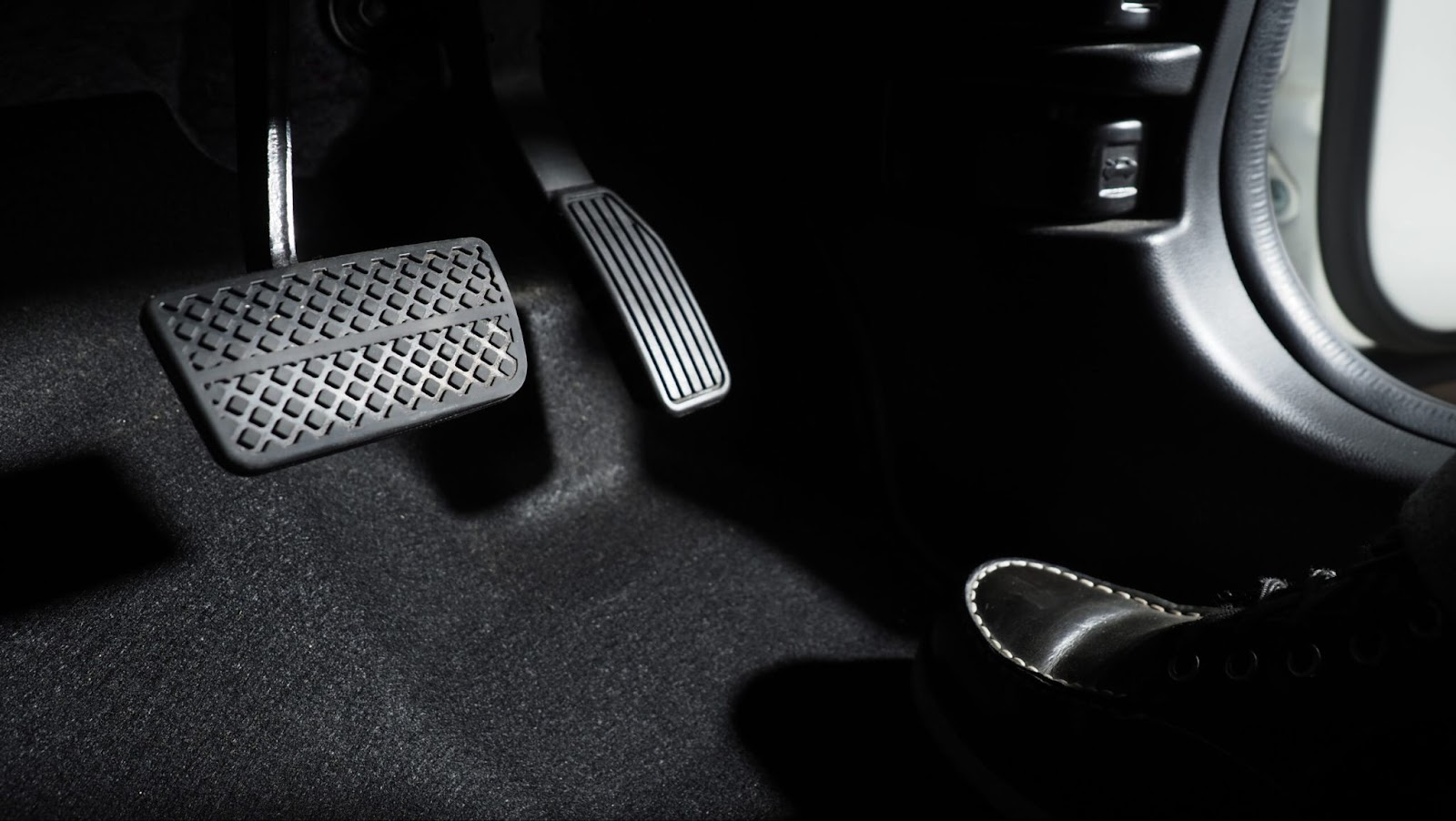Hard Brake Pedal: Causes and Dangers

(เครดิตรูปภาพ: Jerry)
What Does “Hard Brake Pedal” Mean?
The brake system is one of the most critical safety components in any vehicle. Even a minor malfunction can put the driver and passengers at serious risk. A common issue that drivers may encounter is a hard brake pedal, which means the brake pedal becomes stiff and requires more force to press down, or sometimes it feels almost impossible to depress as usual. This article will explore the causes of a hard brake pedal, the potential dangers, and how to fix or prevent it.
Causes of a Hard Brake Pedal
Brake Booster Failure
The brake booster helps reduce the effort needed to press the brake pedal. If the booster diaphragm leaks, wears out, or the check valve malfunctions, the driver must apply much more force, causing the pedal to feel hard.Vacuum Hose Leak or Blockage
The brake booster relies on engine vacuum. If the vacuum hose is cracked, leaking, or clogged, the system cannot generate enough suction, resulting in a hard brake pedal.Master Cylinder Issues
Worn seals or internal damage in the master cylinder can reduce hydraulic pressure, making it harder to press the brake pedal.Engine Stalls While Driving
When the engine shuts off, the vacuum supply to the brake booster stops. This instantly makes the brake pedal hard and reduces braking performance.Brake Fluid Problems
Old, contaminated, or insufficient brake fluid can reduce hydraulic efficiency, leading to a stiff brake pedal.
Is It Dangerous?
The answer is extremely dangerous. A hard brake pedal means the braking system cannot function properly, making it harder—or sometimes impossible—to slow down or stop the vehicle. At high speeds or in emergency situations, this significantly increases the risk of accidents.
How to Prevent and Fix It
Inspect the brake booster and vacuum hoses regularly. Replace them immediately if leaks or cracks are found.
Change brake fluid on schedule, usually every 40,000 km or every 2 years.
Pay attention to warning signs, such as requiring more effort to press the brake pedal or reduced stopping power, and take your car to a professional mechanic immediately.
Do not continue driving if the brake pedal feels hard, as it poses a high risk to your safety and others on the road.
A hard brake pedal is not a problem to be overlooked, as it may be a warning sign of a malfunctioning brake system. Regular inspections and maintenance are the key to ensuring safe driving.
Claim your free car valuation today!
Read More: Safety Braking Distances Every Driver Should Know!
Looking for a car appraisal? You can contact us for a free car valuation within 24 hours…
